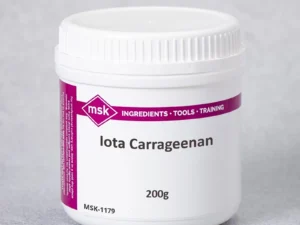Description
Calcium Propionate: The Unsung Hero Keeping Your Bread Fresh
We’ve all been there: reaching for a slice of bread, only to find a fuzzy, unwelcome guest has already moved in. That dreaded mold is a common household annoyance, and a silent battle rages in bakeries and food manufacturers worldwide to prevent it. Enter calcium propionate, a food preservative that plays a vital, yet often unacknowledged, role in keeping our baked goods fresh and safe to eat.
What is Calcium Propionate?
Calcium propionate is a naturally occurring organic salt formed by reacting propionic acid with calcium hydroxide. Propionic acid is produced by some bacteria, notably in the intestine of ruminant animals, and even occurs naturally in some cheeses. Its salt form, calcium propionate, is a white, odorless powder commonly used as a preservative, particularly in baked goods.
The Power of Preservation: How it Works
Calcium propionate works by inhibiting the growth of mold and bacteria. Unlike some preservatives that simply kill microorganisms, calcium propionate interferes with their ability to reproduce and thrive. Specifically, it disrupts the energy production pathways of these unwanted organisms, effectively slowing down their growth and preventing spoilage. This is particularly effective against molds commonly found on bread and other baked goods.
Why is it Used in Baked Goods?
The prevalence of calcium propionate in the baking industry comes down to several key factors:
- Effective Mold and Bacteria Control: It’s highly effective at inhibiting the growth of a wide range of molds and bacteria that can lead to spoilage and potentially even health risks.
- Extends Shelf Life: By slowing down microbial growth, calcium propionate significantly extends the shelf life of baked goods, reducing food waste and allowing for broader distribution.
- Minimal Impact on Taste and Texture: Compared to some other preservatives, calcium propionate has a minimal impact on the taste, texture, and overall quality of the final product, especially when used in recommended amounts.
- Cost-Effective Solution: It’s a relatively inexpensive preservative, making it an attractive option for food manufacturers looking to maintain product quality without significantly increasing costs.
Beyond Bread: Other Applications
While primarily used in bread, rolls, tortillas, and other baked goods, calcium propionate has other applications as well:
- Cheese Products: It can inhibit mold growth in certain cheese products, extending their shelf life.
- Processed Meats: In some cases, it’s used in processed meats to prevent the growth of microorganisms.
- Animal Feed: It’s sometimes added to animal feed to prevent mold growth and maintain the nutritional value of the feed.
Is Calcium Propionate Safe?
Calcium propionate is generally recognized as safe (GRAS) by regulatory bodies like the U.S. Food and Drug Administration (FDA) and the European Food Safety Authority (EFSA). It’s been extensively studied and considered safe for human consumption when used at appropriate levels. Because it’s a natural organic salt, the body easily metabolizes it, breaking it down into calcium and propionate, both of which occur naturally in the body.
Controversy and Concerns
Despite its widespread use and generally recognized safety, some individuals have reported experiencing sensitivities or allergic reactions to calcium propionate. These reactions are rare and typically mild, but can include symptoms such as skin rashes, digestive issues, or headaches. More research is needed to fully understand the potential for sensitivity and to identify individuals who may be at higher risk.
The Future of Food Preservation
As consumers become increasingly aware of the ingredients in their food, there’s a growing demand for “clean label” products that use natural and minimally processed ingredients. While calcium propionate is a relatively simple and effective preservative, the search for alternative preservation methods continues. Research into natural antimicrobials, advanced packaging techniques, and other innovative solutions may lead to even more sustainable and consumer-friendly ways to keep our food fresh and safe in the future.
In conclusion, calcium propionate is a vital yet often unnoticed ingredient that plays a key role in ensuring the freshness and safety of many of our favorite baked goods. While some concerns exist, the vast majority of research supports its safety for human consumption. As the food industry continues to evolve, the search for innovative and sustainable preservation methods will undoubtedly continue, but for now, calcium propionate remains a reliable and effective tool in the fight against mold and spoilage.





















Reviews
There are no reviews yet.